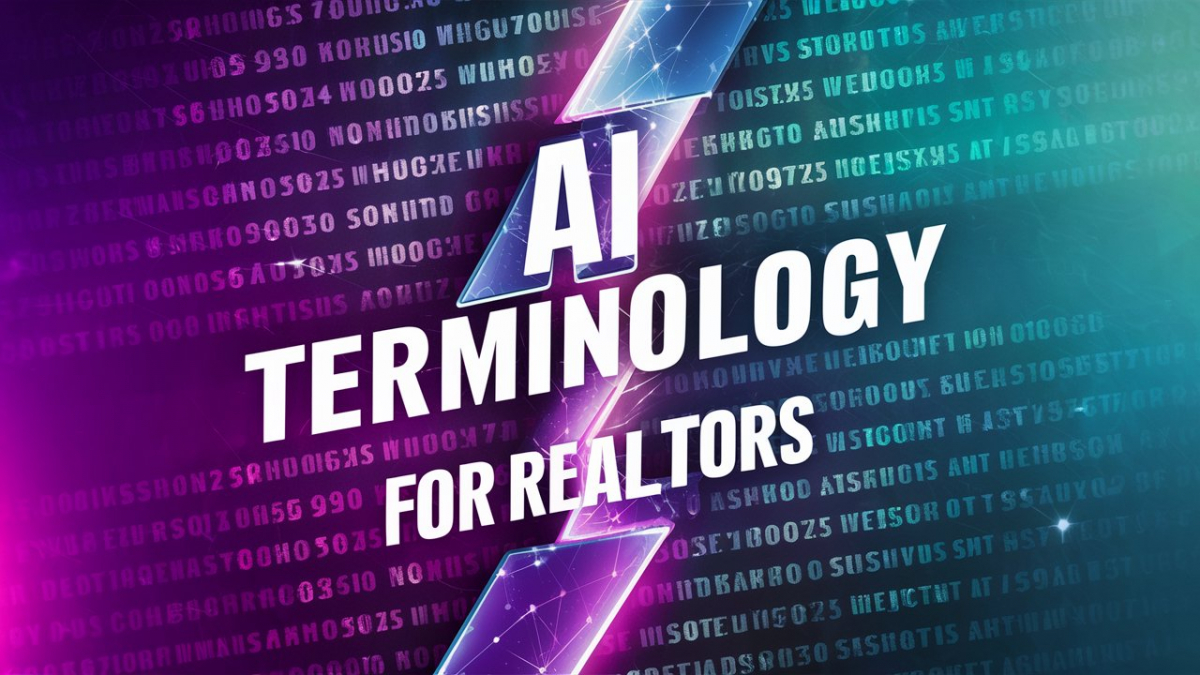The world of real estate is booming with innovation, and artificial intelligence (AI) is taking center stage. But fear not, fellow property professionals! This guide will translate the top 20 AI and machine learning (ML) buzzwords into plain English, using relatable property analogies to help you navigate this exciting new landscape.
1. Machine Learning (ML): Imagine a seasoned realtor who learns the local market by experience, he understands the demands of the local area and learns new information by speaking to customers and by remaining in a constant cycle of learning and improving. In a similar instance, ML algorithms analyse vast amounts of property data (past sales, rental listings, demographics) to identify trends and make predictions, becoming more accurate with each new piece of information.
2. Deep Learning: Think of deep learning like a team of highly specialised real estate analysts working together. Deep learning utilises complex neural networks with multiple layers to process information, mimicking the human brain in a simplified way. This allows for tackling intricate tasks like advanced image recognition.
3. Artificial Neural Networks (ANNs): These are the core building blocks of deep learning, acting like interconnected neurons that process information. Imagine a network of experienced realtors sharing insights and collaborating to solve complex market challenges, neural networks act in similar nature but allows computers to recognise complex patterns and solve common problems.
4. Natural Language Processing (NLP): Ever wished your computer could understand tenant inquiries the way you do? NLP empowers machines to understand and respond to human language. Think of a multi-lingual virtual leasing agent who can answer basic questions and even schedule viewings through text messages.
5. Computer Vision: Imagine a system that can "see" a property just like you can. Although computer vision powered programs don't have eyes like we do, computer vision uses algorithms to recognise and analyse images and videos, allowing for tasks like automated property inspections or identifying key features in photos for marketing purposes.
Tired of wasting time looking for the right AI resources?
Find the best AI Tools for Real Estate Now
Explore our Platform6. Generative AI: This is the creative side of AI, generating entirely new content in the form of text, photo or video. In the property realm, generative AI can design architectural buildings, floorplans, virtual tours or even draft initial property descriptions based on existing data.
7. Big Data: This refers to massive datasets that hold valuable insights. Imagine a filing cabinet overflowing with historical property data, market trends, and demographic information. Big data is the key to unlocking the power of machine learning.
8. Algorithm: Think of a recipe used for baking the perfect property deal. Algorithms are the set of instructions that ML models use to analyse data and make predictions.
9. Training Data: This is the "food" that nourishes your AI assistant. The more property-related data you feed an algorithm (past sales figures, rental listings), the better it performs.
10. Prediction: Imagine having a crystal ball that gives you a glimpse into the future of the property market or helps you predict rental yields for your next property investment. Well, with AI-powered prediction, that's kind of what you get!. Just like forecasting market trends, Prediction in AI uses data analysis to make educated guesses about future outcomes.
11. Machine Learning Model: Imagine having a highly skilled property analyst on your team, one who has access to and can analyse vast amounts of real estate data in seconds. That's the essence of a Machine Learning Model (ML Model). It's a software program trained on specific algorithms that allow it to learn from data and make predictions.
12. Supervised Learning: Imagine you're training a new team member to become a property wiz. In supervised learning, this is exactly what's happening! It's a type of machine learning where you provide the AI algorithm with data that's already labeled with the desired outcome. Imagine showing a trainee realtor photos of different properties and labeling them as "good investment" or "not recommended."
13. Unsupervised Learning: Unsupervised learning is a type of machine learning where the data you provide isn't labeled with a specific outcome. Instead, the algorithm is tasked with identifying patterns and relationships within the data itself. Imagine sifting through a treasure chest of property data – rental listings, demographics, amenities – without any preconceived notions. Unsupervised learning acts like a skilled detective, uncovering hidden trends and insights you might have missed.
14. Reinforcement Learning: Imagine a talented trainee realtor who learns the ropes not just from textbooks but by actively negotiating deals and observing the outcomes. This is the core concept behind reinforcement learning (RL), a type of AI where the system learns through trial and error, just like a real estate professional honing their skills.
15. Data Cleaning: Just like organising your filing cabinet, data cleaning ensures the information used by AI is accurate and complete. Imagine removing outdated listings or correcting errors in property data before feeding it to your algorithms.
16. Large Language Model (LLM): Imagine having a highly trained research assistant who can sift through mountains of real estate text data and generate summaries, translate documents, or even draft property descriptions in different styles. An LLM is a type of AI that excels at processing and understanding large amounts of text information. In the property management world, LLMs could be used to analyze market reports, identify trends in tenant inquiries, or even personalize marketing materials based on specific demographics.
Interested in learning more of the basics? Sign up to our next Free Webinar, 'An Introduction to AI in Real Estate':


